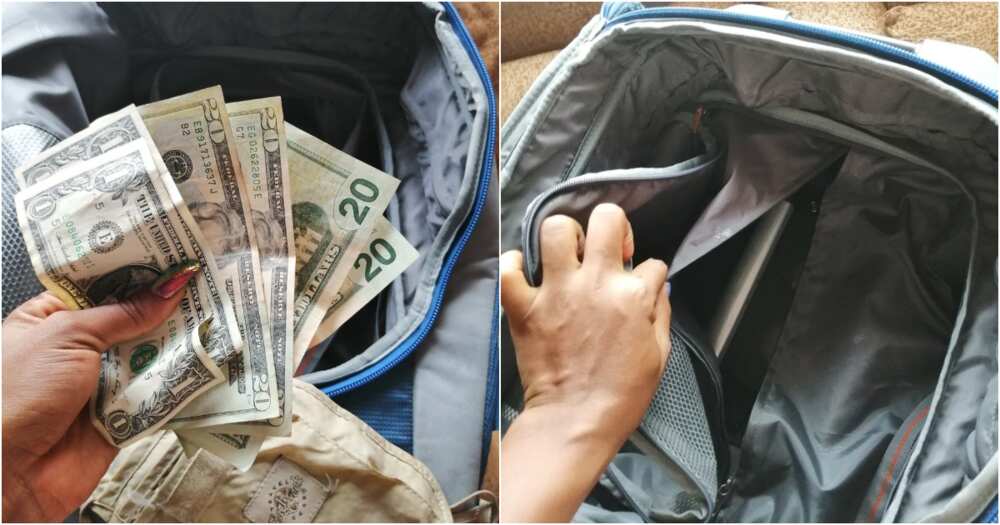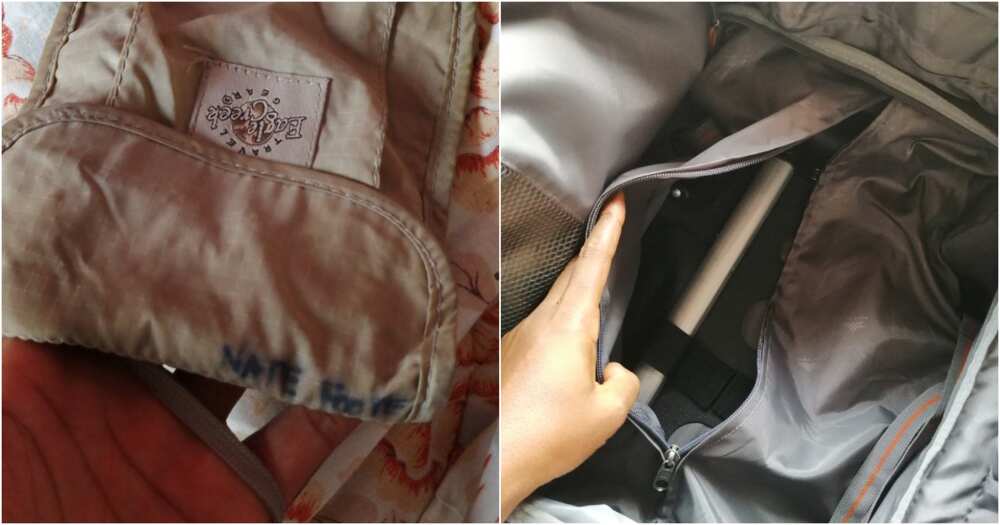Fairly used items are items that are re-sold after they have been used by a previous owner. At times the previous owners are the ones who put up their used items for sale and other times fairly used items from different people are sold in bulk.
In some cases the fairly used items or okirika as Nigerians call the items that are sold in bulk also contain new items that were disposed by factories after making minor mistakes in manufacturing it.
There are times that some of the fairly used items bought at okirika markets have marks that shows the identity of the previous owners. This happens when new owners find things like name tags, notes, an old stain, a business card and more.
A Nigerian lady who had bought a fairly used bag at Ogba market in Lagos state has found something that the previous owner of her bag left. The lady identified simply as Lucy found old dollar notes in the bag.

Nigerian lady finds dollar notes in fairly used bag she bought Twitter source: Lucy
Source: Twitter
READ ALSO: Bride steals flowers from neighbour's garden, uses it as decorations at wedding
The lady shared a tweet with photos of the dollar notes and the newly bought bag. The lady also shared a photo showing the name of the previous owner written on the bag, Nate Fooye.
Lucy expressed that she plans to return the money once she finds the owner. She added that she sent a mail to the man after she found an address on a business card in the bag.
PAY ATTENTION: Read best news on Nigeria's #1 news app

The lady noted that she wishes to return it to the owner Twitter source: Lucy
Source: Twitter
PAY ATTENTION: Get your daily relationship tips and advice on Africa Love Aid group
According to the lady, she found out that the notes worth less in naira than they should now because they are all 2006 notes. She said her friend had taken 21 dollars from the 62 dollars.
READ ALSO: NAIJ.com upgrades to Legit.ng: a letter from our Editor-in-Chief Bayo Olupohunda
In another news, Legit.ng had earlier reported that a cleaner working at the airport, who returned millions four different times to owners who lost it, complained about how she was not appreciated for what she did.
NAIJ.com (naija.ng) -> Legit.ng We have upgraded to serve you better
Woman who returned millions found at the airport speaks - on Legit TV
Source: Legit.ng
from Legit.ng: Latest Nigeria News Today & Breaking Naija News 24/7 http://bit.ly/2ZukEwe
via EDUPEDIA24/7
Comments
Post a Comment